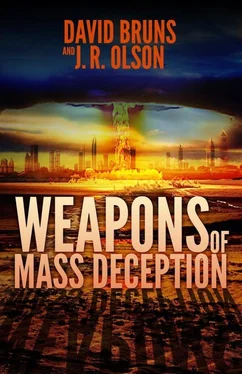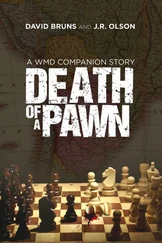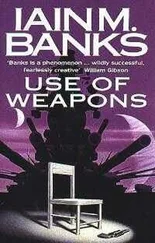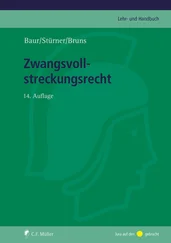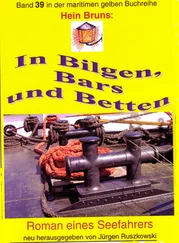“Excuse me, gentlemen,” she said. “Mr. Riley has arrived.”
The room must have been a ballroom at some point in its history. The ceilings were at least twenty feet high and finished with ornate plaster castings. The walls were a pale yellow, warmed by the sunshine streaming in through the French doors that lined the wall. Outside, Don could see a wide veranda and the frozen Vantaa River beyond.
For the meeting, an area rug covered the beautiful honey-colored parquet floor, and two rows of tables faced each other separated by about six feet. All of the chairs, twelve on each side, were occupied — except for one. Don dropped his computer bag and stood behind his chair. He felt his face grow hot as he faced the room. “Good morning — afternoon, I mean, everyone. Sorry to interrupt. Flight delays…” He let his voice trail off.
No one said anything, so he sat down.
The meeting continued. Don pulled out his laptop and waited as it booted up. He scanned the opposite side of the table, trying to commit the names and faces to memory. He’d read the dossiers on most of them, and they were your typical bureaucrats: low-level career paper-pushers.
The third man along the row of Iranians was an unexpected member of the delegation. Don read the paper nametag on the table in front of him: Reza Sanjabi. The man’s laptop — the only one in the row of Iranians — was closed, and he took sparse notes on a yellow legal pad. Don did not remember seeing this man’s dossier.
He looked to be in his late forties, with a pudgy, clean-shaven face and large hooked nose. The man seemed to sense he was being watched. His liquid brown eyes met Don’s, and he offered a slight smile and a quick nod before breaking eye contact.
Don stared down at his computer screen, and tried to find the spot in the agreement they were discussing.
* * *
The day passed with mind-numbing slowness. Don now saw why no one else had volunteered to come to the meeting. The negotiators described this as a “trust-building meeting,” a gathering where they talked about how they might talk about an agreement. They’d spent a good portion of the afternoon on one paragraph of the potential draft document and the word nuclear had not even been used in any of the text so far. Don felt a headache building.
After a break to freshen up, the attendees gathered back in the ballroom for cocktails before dinner. Don quickly realized that the entire US team had worked together before. They acted professionally toward Don, but they also made it clear he was not welcome for anything other than work matters. He got a Jameson at the bar and moved to the French doors overlooking the darkened river.
In the brightly lit room behind him reflected in the darkened glass, the diplomats were arranged in small groups according to their rank. A figure broke off from one of the nearby groups and approached Don.
“Hello,” he said in flawless English. “My name is Reza.” He had a trace of a British accent.
Don turned and shook his hand. His palm was soft, but the handshake firm. The man’s molten brown eyes seemed to look right through Don. “It is a pleasure to make your acquaintance, Donald.” He made a broad gesture to the room. “This is a remarkable place, is it not?”
Don nodded. He could see that a few members of the US delegation had noticed he was speaking with Reza. “Yes, I understand this building has quite a history as a location where the seeds of peace have been planted.”
Reza smiled. “I have heard that.” With his drink hand, he motioned at the chandelier, a monstrous affair of crystal and gold. “Magnificent."
“And this location…” Reza turned to face the darkened glass. “Such natural beauty.”
Don followed his lead and faced the glass, away from the rest of the room.
Reza spoke softly. “It must be a sight in the spring, when the snows melt and new life blooms.”
Don’s reflection nodded.
“Not unlike countries,” Reza said. “They come through a winter of hardship, and new leadership creates new growth, new alliances… even peace where before it was not possible.”
Don could see the head of the US delegation glancing in his direction. He looked like he might be about to come over.
“New leadership can make all the difference,” Don said.
“We have such a leader in Hassan Rouhani,” Reza replied. He was watching the gathering behind them in the glass, and seemed to sense they were about to be interrupted.
Don knew Rouhani’s name, but consensus in the US was that his chances in the election were slim.
“Mr. Sanjabi, is it? I don’t believe I’ve had the pleasure.” The head of the US delegation held out his hand. “Richard Welker.”
“Mr. Welker, the pleasure is mine,” Reza replied in a warm tone. “I was just remarking to Mr. Riley about the beauty of this place.”
“Yes.” Welker’s tone said he didn’t think much of the beauty of Finland in winter or Donald Riley. “I suppose if you enjoy snow and cold, it’s fine. Why don’t I introduce you to the rest of the US delegation and freshen that drink for you?”
“Of course, that is very kind of you,” Reza replied. He turned to Don, extending his hand. “Mr. Riley, it was a pleasure to make your acquaintance. Please enjoy your stay in Finland, and I hope you see this beautiful country in the bloom of spring.”
His hand closed around Don’s, and Don felt something press between his ring finger and middle finger.
A slip of paper.
He curled his fingers around the paper and thrust his hand in his pocket.
He tilted his glass in Reza’s direction and smiled. “To spring,” he said, and drank off the last of the Jameson.
Estancia Refugio Seguro, Argentina
13 June 2012 — 2200 local
Rafiq could see Javier’s face illuminated briefly as he lit his cigar. The flame jumped erratically as the old man puffed on the Cuban, his features hazy in the smoke.
In the orange glow, Rafiq could make out Javier’s neatly trimmed goatee, his square jawline and hooded eyes. He wore his hair long, like the locals, gathered at the nape of his neck in a ponytail. On any other man, the ponytail might seem pretentious, but on Javier it looked distinguished.
It was the perfect disguise, Rafiq realized, and the perfect trap. The same trap he was walking into.
Javier. That wasn’t his real name, of course; it was the name he chose when he came to Argentina in 1983, shortly after the bombing of the US Marine barracks in Beirut. Javier’s part had been large enough that he was sent to South America for a cooling-off period.
That was thirty years ago, and Javier was still in Argentina.
Thirty years…
As Javier told the story, he’d met Consuela, the only daughter of a wealthy rancher, during his first week in the country. There were various versions of the story — some involving Consuela riding up on a pure white stallion, others in which he helped her across the street, and even one where they met at a costume ball and kissed at midnight — but they all ended the same way: Javier married Consuela, became a wealthy landowner, and never went back to his homeland.
I’ve been here four years, Rafiq thought. Is this how I will spend the rest of my days, drinking wine and smoking cigars in the dark? He reminded himself again that he was performing a sacred duty for his brother, a task that only he could perform.
That excuse was wearing thin on his conscience.
In truth, Javier’s role in the Tri-Border Region did more for the cause of Islamic freedom than anything he might accomplish in the Middle East. In addition to the safekeeping of Rafiq and his “cargo”—that was how they referred to Rafiq’s mysterious charge — he provided a steady stream of funds for Hezbollah as well as the occasional recruit from the local Lebanese diaspora.
Читать дальше
